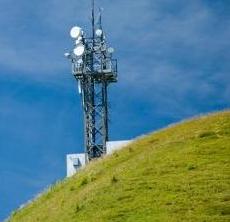  The telecom operators have been accused by Green Peace India of defying government’s directive to publicly announce their carbon emissions.
It said that they have failed to stick to the deadline as mandated in the Green Telecom Directive, for the second year.
“It is a matter of grave concern that the telecom operators are continuously defying the government directive on green telecommunication when in fact the directive is going to help their business. Given the defiant position of telecom operators, we demand the government to ensure the implementation of the green telecom directive by setting effective compliance mechanism.” Mrinmoy Chattaraj, Campaigner, Greenpeace India said.
Green Peace India said in a statement that the Tower and Infrastructure Providers Association (TAIPA) has issued a request for proposal for 500 sites even though the pilot on around 4000 sites has already been conducted.
It said that energy has been a major component of the operating expenditure of the telecom operators and with the recent hike in the diesel price; it will further hit their profitability. The implementation of the green telecom directive will result in a saving of INR 80, 000 crore over a period of 8 years for the telecom sector.
Greenpeace has been campaigning with the telecom sector for over two years now urging it to shift away from diesel in a time bound manner and also timely disclose its carbon emissions. In its latest report “Enabling Clean Talking” released in August this year, Greenpeace presented a detailed economic and environmental roadmap based on the Green Telecom Directive issued by the Department of Telecommunications (DoT).
The report also proposes a compliance mechanism as well as mandatory obligation on transparency and disclosure of carbon emissions.
Greenpeace urges that all obligated entities i.e. telecom operators, should disclose carbon emissions of their business operations under the globally accepted framework of GHG protocol of World Resource Institute (WRI).
“The sector is losing out on its profitability by sticking to the expensive and polluting diesel and also being irresponsible towards environment. The hike in the diesel price is a wake-up call for the sector and a reminder that the road ahead is rough if they don’t take a decision on the diesel phase out now.” Chattaraj added further.
As the telecom operators continue their expansion in the rural areas they have a huge opportunity to champion the green telecommunications.
Greenpeace is calling on the telecom industry to focus on managing its energy and carbon by substantially shifting its power generation for network operations to renewable sources, and to proactively advocate for economy-wide policies that combat climate change and increase the use of renewable energy. |